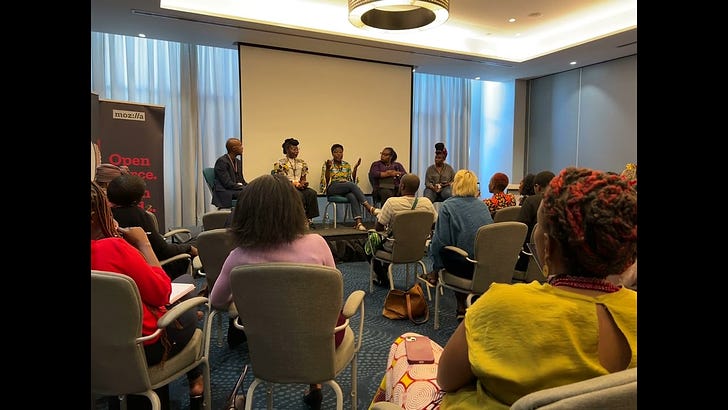Dear Friends,
What a time to be alive. Granted, the 1990s was an even better time to be alive. But now’s great too. Some recent, related essays I have enjoyed:
It's So Sad When Old People Romanticize Their Heydays, Also the 90s Were Objectively the Best Time to Be Alive
If you were born between 1978 and 1982, then you really must read Freddie deBoer’s funny and profound essay on culture today compared to the 1990s. Teaser:
You used to do things and have places to do them. For example, there were record stores. Yes, I know: the cellphone in my pocket can access all the music ever made. I get that. But a record store was a place. And places demonstrate importance; sometimes they demonstrate devotion. You’d go in there and there would be a couple of vaguely pretentious staff members and people pawing through racks of CDs and a wall of t-shirts and posters. And they’d play cool shit that you hadn’t heard before, which was one way to discover new stuff. So was flipping endlessly through every CD in a row. When you were there, you were Doing Music. Now we’re never doing anything - we’re always getting through something to get to something else to get through, using various time-saving techniques that maximize the amount of time we have to get through things while keeping our attention divided into a thousand things we then get through.
There was an immediacy to experience back then. I know what you’re thinking: that’s just because you were young. But honestly, there was something different, an intentionality and a lack of a certain sort of self-consciousness. Of course, people were still anxious and shy and overthought everything. But there wasn’t yet this second mind thing going on, this sense of another consciousness that’s welded to your own consciousness and has its own say all the time.
Hat tip: Ted, who does not have a Substack but should.
America’s Culture Is Booming. Really.
Okay, so things were better in the 90s. For instance, Ted Gioia reminds us that “only 28 books sold more than 500,000 copies last year—and eight of them were by the same romance writer.” The YouTuber MrBeast has twenty times more subscribers than the New York Times. His least viewed video in 2022 had 66 million views. Where do teenagers consume culture? They are watching short videos all day long:
Gioia is a 67-year-old jazz critic who used to teach at Stanford. You probably think that he criticizing the state of culture in 2023. I sure did. But that’s not where takes it. Noting all of the recent layoffs at big media companies, he writes:
The dominant institutions may be stagnant and obsessed with repetitive retreads and reboots. And when a multibillion-dollar company like Disney or Facebook hits a brick wall, it gets a lot of coverage in the press. But there are thousands of small players in the culture ecosystem right now who are flourishing—or have the potential to do so. We really ought to help them out. We all ought to buy more albums on Bandcamp or subscribe to worthy Substackers or whatever.
Like, you can hear straight from Kareem Abdul-Jabbar’s Substack what he thinks about LeBron’s scoring record
What a beautiful, thoughtful reflection from Kareem. This woulda been a 5-second sound clip in the 1990s. Now you can hear directly from the man who lost the highest-scoring NBA record to Lebron. And if you’re willing to become a paid subscriber, you can also read his reflection about MLK Day. Lovely.
Why you can't trust the media
Sure, there’s a lot of bad media out there. Like this week’s newsletter is pretty bad: I’m mostly regurgitating the thoughts of others instead of contributing something original — and sometimes it feels like 95% of the Internet is this kind of regurgitation. But just as there is more bad media than ever before, there’s also an unprecedented amount of good media. We could ask “why is so much media bad?” But the fundamental question is, “Why do we pay more attention to bad media?”
I’m afraid that the main problem is the news-reading audience, which simply does not agree that the purpose of journalism is to bring true information to light. I don’t know why people read what they read, but they are mostly not seeking actionable intelligence about the state of the world and therefore don’t care that much about accuracy.
We pay attention to bad media because, apparently, we like to feel outraged. We are all guilty of choosing outrage over useful information. This past week I attended the Africa Media Festival in Nairobi. In nearly every session, I heard the same angry criticisms of how Africa is portrayed in the New York Times, BBC, and CNN. I couldn’t tell if the anger was cathartic, or if it just created more anger. And then Eliza Anyangwe dropped this:
Amen.
🧰 A useful tool
I continue to look for tools that give me more useful information and less outrage. Readwise’s Reader is still by go-to reading app, but I’ve also been enjoying Matter, which sends me a weekly digest of new articles by writers based on what I have saved to Pocket. It has become the weekly digest I click on the most.
👏 Kudos
Congrats to Eritrean cyclist Henok Mulubrhan who defended his African championship last week in Accra last week. I rode the same route with some speedy Ghanaians last October and can’t imagine how fast these guys were going.




Henok will lead his team in the Tour du Rwanda, which kicks off tomorrow. Four-time winner of the Tour de France, Chris Froome, will be in the peloton.
Have a great week!
David





